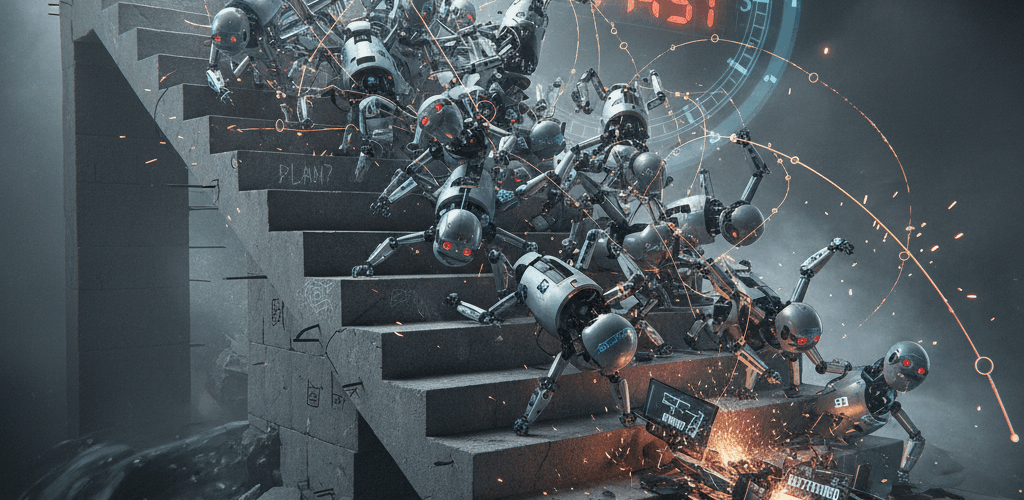EN
DE
NL
Why technology can be ready before society is
In recent months, I have often heard the phrase:
‘AI came into our world too early.’
And the more I think about it, the more I agree — at least in part. Not because the technology is immature. But because we are.
Technology is mature — but the world is not
Artificial intelligence is no longer a topic for the future. It is here. Everywhere. In our texts, in our tools, in our conversations. But while technology learns at the speed of light, many organisations are still moving at an analogue pace: linear, hierarchical, distrustful.
We talk about agentic AI, while managers still have to fill out PDF forms, and schools block ChatGPT instead of teaching how to think with it. The truth is uncomfortable: we haven’t set sail yet, but the engine has been running for a long time.
AI as a steamship in the age of sail
Technologically speaking, we have entered the industrial age of intelligence – but socially, we are often still stuck in the feudal age of bureaucracy. It’s as if someone had invented the steamship in the 15th century – in a world that was still studying the wind in order to move forward.
AI has long been able to control entire processes, write texts and simulate decisions. But what it cannot replace is our ability to give meaning. And this is precisely where the gap lies.
Niet te vast trekken, dan breekt het touwtje niet
I have quoted this Dutch proverb before.
It comes from seafaring: ‘Don’t pull too hard, or the rope will break.’
And it fits here too. If we introduce AI too quickly, too harshly, too ambitiously, the rope between technology and trust will break. We don’t need ‘more AI’. We need more awareness – about culture, responsibility, ethics and meaning. AI must grow with society, not against it.
The right time is now – if we shape it
Perhaps AI didn’t come too early. Perhaps we are simply too late. Too late with education, courage, openness. Too late with questions we should have asked earlier. But the good thing is: we can make up for lost time with attitude.
If we learn, reflect, share and shape now, then this technological advantage will not be a risk – but an opportunity to rethink how we live, learn and lead. Because progress without maturity is just speed. And that doesn’t get any ship safely to its destination.
I often compare the current situation with the dotcom back in 2000

„Niet te vast trekken, dan breekt het touwtje niet.“ (Don’t pull too hard, or the string will break)
Perhaps that is the most important leadership lesson for the age of AI.
